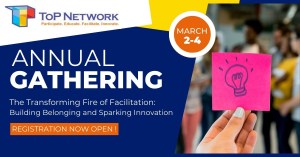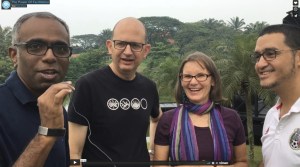 Monday, 11 September 2023 – 1.00-2:30pm UK time
Monday, 11 September 2023 – 1.00-2:30pm UK time
Thank you again to the 95 who shared their experience and insights so generously at this free facilitation webinar, and to all the 247 who expressed an interest by registering for the session – as for our May session, we are excited again that the topic and the session generated so much interest!
Thanks also for the fabulous co-facilitation this time of Monica Atim and producer support of Megan Evans & Dawn Williams, and to International Association of Facilitators (IAF) for hosting and ICA:UK, We Are Feminist Leaders & The Collective for partnering.
Scroll down for the recording, and the slides and other outputs…
What does feminism bring to facilitation, and what does feminist facilitation look like? How can I ensure that my own practice as a professional facilitator is more effectively and explicitly feminist, anti-racist and anti-oppressive?
 These are the questions that have guided my exploration of feminist, anti-racist and anti-oppressive facilitation this past couple of years. For more on that, see Exploring feminist facilitation.
These are the questions that have guided my exploration of feminist, anti-racist and anti-oppressive facilitation this past couple of years. For more on that, see Exploring feminist facilitation.
As Social Inclusion facilitators, we share the same school of thought and continue to seek understanding and practicality due to the awareness that genuine participation is an essential means to effective group, community, organisational and societal leadership and development. Feminism offers a more realistic and practical application to inclusive facilitation.
Are you practicing or exploring feminist facilitation yourself, or are you interested to do so?
Join us on a journey from a conceptual understanding of feminism, leadership and facilitation to how we can apply these in practice as professional facilitators and as leaders more broadly.
To inform our conversation, please read in advance if you can the SessionLab State of Facilitation survey report and workshop recording & resources Is facilitation a woman’s world?, and Martin’s blog post Exploring feminist facilitation.
This online session is free and open to everyone. It is convened by IAF Social Inclusion Facilitators in partnership with ICA:UK, We Are Feminist Leaders and the Collective. It is a repeat of a session delivered in May, somewhat adapted for Facilitation Week in September by Monica Atim, Martin Gilbraith, Megan Evans & Dawn Williams. Whether or not you joined us May, do join us to further the conversation in September!
Registrations are not limited, but the room capacity will be limited to 100 this time. The May session attracted 700 registrations and 200 attendees, so to secure your place in September please arrive early for the session and join the waiting room until start time.
For recordings and other outputs of previous sessions, see free facilitation webinars.
See also about me, how I work, who I work with and recommendations & case studies, and please contact me about how we might work together.










